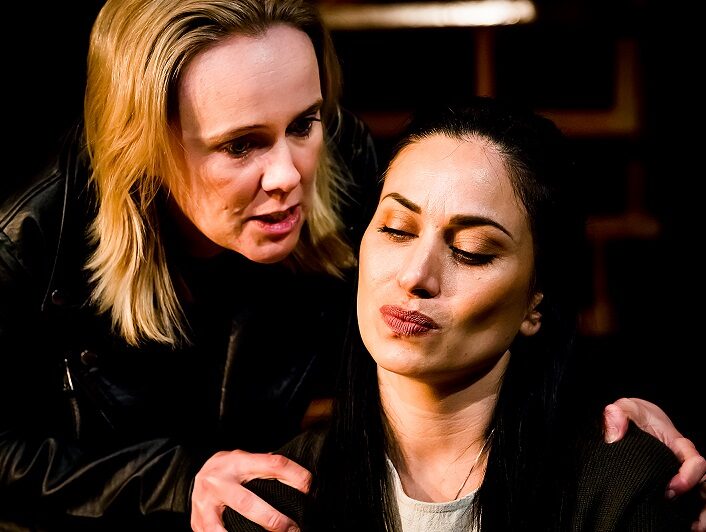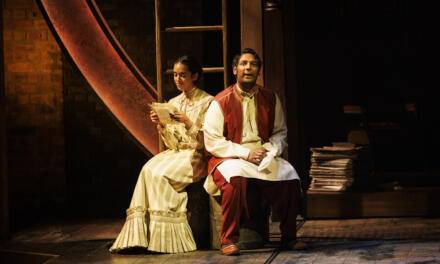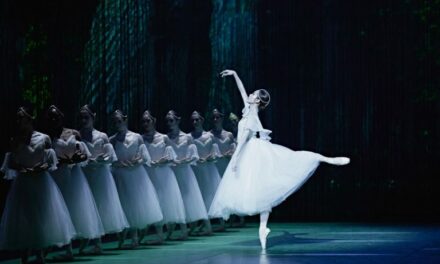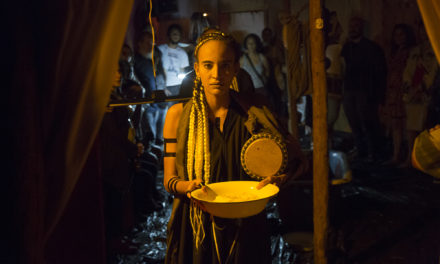Distills the Big Themes of Political Intrigue with Insight, Flair, Withering Wit, and a Welcome Humanity.
It is important to note Sam Brooks – recently named New Zealand’s Most Exciting Playwright by Auckland’s Metro Magazine – had written Burn Her by the time he won the Bruce Mason Playwriting Award in 2016, well before NZ’s last general election in September 2017 and the rejuvenating change in the Labour Party’s leadership that occurred six weeks earlier, resulting in Jacinda Ardern becoming Prime Minister.
The play posits a Labour victory with the old guard at the helm and the surprise entry of the idealistic new Aroha Party with one electorate seat – but not enough party votes (under the MMP system) to gain any more members of parliament. They have won on merit, taking the seat from Labour, so there is no Act/National-style deal that gives them governmental leverage in exchange for support. But there is potential for a closer relationship.
Before the play starts we get to contemplate the superb set, designed by Debbie Fish, which features an elegant spiral staircase to the elevated office of the Aroha Party leader, Aria Robson. Two and three-quarter hours later, as the opening night audience at Circa Theatre thunders its applause, I realize it as a metaphor for a spin; for how screw-ups are screwed down by PR staffers.
As the inspiring leader Aria, Kali Kopae is luminous in delivering her victory speech to the party faithful, emphasizing Aroha’s compassion and their flagship policy that no New Zealand child will go to school hungry. Her mentor Richard Miller, who jumped-ship from Labour to help establish the Aroha Party, basks in her praise and appreciation, putting on a good face despite having just missed out on that second seat. Andrew Laing is majestically benign in the role – until he’s not.
As celebrations continue at Party central, Aria’s Communications/ PR Adviser, George, is too busy to exchange her cellphone and laptop for a glass of bubbles. But she does pause when her Labour Party equivalent, Lauren Rush, drops by to pass on congratulations from the PM. She knows who to praise for the victory. Her line, “There are no good leaders, just good spin,” is but one of the countless zingers in Sam Brooks’ dynamic dialogue. (I’ll reveal no more; trust me.)
Before the night is out, Aria gets a visit from an eager but troubled young intern, Danny. What he tells her becomes – for Aria, Richard and the Aroha Party – the potentially lethal molten core at the nucleus of Burn Her. George takes commanding control and her strategies for sealing off and burying the potential scandal drive the plot of this intensely dramatic, searingly insightful and therefore frequently funny play. Eruptions of laughter abound.
As George, Sophie Hambleton navigates the twists of outrageous spin with riveting authenticity, revealing formidable strength with glimpses of vulnerability as we struggle to judge whether she is professionally shrewd or a sociopathic control-freak; a savior or dangerously subversive. Her battles with Aria are epic as the leader’s idealism is tested. Both Kopae and Hambleton command our empathy as they manifest every emotion in their roles and provoke us to judge their actions.
Lara McGregor’s Lauren epitomizes the ruthless expediency that comes with years of experience in the deep, dark engine-room of political power. She is clearly a survivor and her representation of what it takes to be one also gives us pause.
The third ‘sister’ encircling the cauldron (the fate of suspected witches is specifically referenced and of course is the source of the play’s title) is newspaper journalist Harriet, winningly played with astute assurance by Jean Sergent. And again the question of integrity – integral to the play’s core theme of integrity versus survival, let alone power – keeps us captivated.
As for Danny, the intern, perfectly pitched by Dryw McArthur, he becomes but a pawn in a bigger game, despite Aria’s genuine commitment to keeping him safe. My one question about the script is, why does no-one articulate his right to privacy when it is so callously breached? It certainly causes a huge gasp of collective shock in the audience. You have to be there; trust me.
The exclusive interview with Aria is extraordinarily dramatic, given what has gone before, and we are left to wonder how Harriet will write it up, what directives her editor may impose and what sort of headline the subbies will give it. Is the nightmare over or just beginning?
An epilogue evokes two congruent job interviews that leave us questioning whether the resolution has been the right choice or not. We leave the theatre wondering what might happen next and why undoubtedly more alert to the media and political landscapes we live within.
All six actors claim their roles so completely it’s hard to imagine others playing them (despite the glowing reputation of the Auckland premiere earlier this year). Director Katherine McCrae has corralled the creative elements exquisitely on Debbie Fish’s excellent set, beautifully lit by Marcus McShane – most notably when people are in the media spotlight. Charlotte Forrester’s portentous music holds the tension well between the scenes.
As a political thriller that focuses on relative ‘small fry’ in the greater scheme of things, Burn Her distills the big themes of political intrigue with insight, flair, withering wit, and welcome humanity. This is a must-see production in every respect and I’d advise you to book early.
I’m sure I’m not the first to think it would make an excellent TV drama and could well spin off into a series.
This post was written by the author in their personal capacity.The opinions expressed in this article are the author’s own and do not reflect the view of The Theatre Times, their staff or collaborators.
This post was written by John Smythe.
The views expressed here belong to the author and do not necessarily reflect our views and opinions.


















